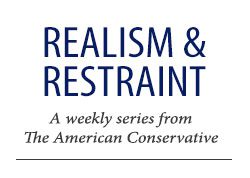Finally Ending the Despicable U.S.-Saudi Alliance

Perhaps no one watched November’s election returns more closely than did Mohammed bin Salman, Saudi Arabia’s crown prince. The Trump administration had spent four years helping him oppress his people and ravage his neighbors
President Donald Trump exulted “I saved his ass,” as if protecting a murderer from punishment was worth celebrating. MbS naturally hoped for four more years.
However, President Joe Biden is now in charge, and he called the Kingdom’s de facto ruler a “pariah” who was killing “innocent people.” The Biden administration is filled with officials who worked for President Barack Obama and regret giving Riyadh a blank check for its brutal war of aggression against Yemen. Secretary of State Antony Blinken said Biden “has made clear that we will end our support for the military campaign led by Saudi Arabia in Yemen, and I think we will work on that in very short order.” Today would not be soon enough.
In response, the Kingdom of Saudi Arabia is putting on a confident public face. For instance, Foreign Minister Faisal bin Farhan declared: “We are optimistic of having excellent ties with the U.S. under a Biden administration.” In a desperate resort to flattery, he also complimented the new president on his appointees, observing that they shared an “understanding of the common issues.”
Moreover, the crown prince temporarily dropped his swaggering arrogance hoping to placate the new occupant of the White House. The Wall Street Journal, a fan of the brutal, corrupt royals, argued approvingly that Riyadh—which has promoted murder and mayhem throughout the region—“is making concessions to improve stability in its neighborhood.”
For instance, last month Loujain al-Hathloul was sentenced to nearly six years in prison, but the regime-controlled court suspended two years of the sentence; given time served, she will be released soon. MbS had earned global opprobrium for arresting her for campaigning against the Kingdom’s ban on women driving (since lifted). National Security Adviser Jake Sullivan called her imprisonment “unjust and troubling.” Al-Hathloul’s most serious offense apparently was working with foreign human rights groups, which sullied the regime’s reputation.
Similarly, in early January another court upheld the sentence of a Saudi-American doctor, Watlid Fitaihi, detained for more than two years without trial and tortured. He was charged with criticizing Arab states, tweeting his praise for the 2011 Arab Spring, and gaining U.S. citizenship without Riyadh’s permission (the charge was “disobedience” to the royal family). Here too the KSA backtracked, cutting his sentence nearly in half, freeing him from further jail time, though he still is barred from leaving the Kingdom.
Long one of the world’s most prolific executioners, Saudi Arabia announced a moratorium on capital sentences a couple days before Biden’s inauguration. The regime also changed the law that allowed the killing of minors as well as those arrested for political offenses.
Moreover, after years of broken promises, Riyadh finally reduced hate-mongering in Saudi textbooks. So vile were the Kingdom’s past educational materials that they were used by the Islamic State. Infamous for demonizing the other, these texts indirectly encouraged murder and terrorism. However, volumes prepared for the 2020-2021 school year were markedly improved, though not completely cleansed of hate-promotion.
The regime also attempted to soften its international image. In early January the regime cut oil production, appealing to Washington, which prioritized protection of U.S. shale oil firms over consumer protection. Riyadh also announced plans for a zero-carbon city, sure to please an administration which tasked former senator and secretary of state John Kerry as climate change ambassador.
Even more dramatic, shortly before Biden’s inauguration the Kingdom ended its diplomatic and economic assault, initially backed by invasion plans, against neighboring Qatar. The campaign conveniently was initiated shortly after Trump’s inauguration.
No doubt, MbS hopes these steps will help counteract calls to hold him accountable for his crimes. However, his offenses remain too many to excuse. Indeed, the Kingdom continues to target America. For instance, Riyadh actively sought to limit access to the new film, The Dissident, which explores the murder of Jamal Khashoggi, the Saudi journalist and onetime royal confidant who resided in the U.S.
Saudi online trolls drove down the well-regarded film’s online ratings. Worse, fear of royal retaliation appeared to deter major streaming services from carrying it. In fact, Netflix previously complied with Riyadh’s request to block a show in the Kingdom. Shadi Hamid of the Brookings Institution allowed: “I don’t know what the right word is—censorship or repression or something else.” He explained: “the basic point holds—a powerful regime that doesn’t have the same scruples as others is creating a culture of fear, and companies react with kowtowing.”
Moreover, the Saudi government continues to protect its citizens from American justice.
Saudi diplomats routinely assist Saudi citizens charged with crimes to jump bail and return home. Sen. Ron Wyden (D-Oregon) observed that “the Saudis pursue these cases with extraordinary sophistication. And they are certainly looking at every possible tool for being above the law.” The FBI concluded that “Kingdom of Saudi Arabia officials almost certainly assist U.S.-based Saud citizens in fleeing the United States.” Cases include manslaughter, rape, and child pornography.
The crown prince has become the fount of regime criminality. The royal family dictatorship was generally moderate in its repression and collegial in its corruption until King Salman bin Abdulaziz Al Saud took over in January 2015. He put his favorite son, MbS, in charge. The latter loosened cultural strictures while tightening political control.
According to the slightly sanitized State Department human rights report, Riyadh is responsible for:
unlawful killings; executions for nonviolent offenses; forced disappearances; torture of prisoners and detainees by government agents; arbitrary arrest and detention; political prisoners; arbitrary interference with privacy; criminalization of libel, censorship, and site blocking; restrictions on freedoms of peaceful assembly, association, and movement; severe restrictions of religious freedom; citizens’ lack of ability and legal means to choose their government through free and fair elections; trafficking in persons; violence and official discrimination against women, although new women’s rights initiatives were implemented; criminalization of consensual same-sex sexual activity; and prohibition of trade unions. In several cases the government did not punish officials accused of committing human rights abuses, contributing to an environment of impunity.
Saudis affirm that the situation is worse than ever. MbS has an almost pathological determination to punish any Saudi who criticizes his rule. According to the Financial Times: “Waves of crackdowns have continued. Hundreds of activists remain in prison, according to human rights groups. One veteran activist died in custody this year and another writer died shortly after he was released.”
Torture is routine. Bloggers and writers even have been arrested for what they did not say—failing to sing the regime’s praises after it unveiled its blockade against Qatar, for example. The red lines were erased as the Kingdom moved into a 1984 kind of world. Said one Saudi, “retroactive arrests are made for things now deemed unacceptable.” Even senior members of the royal family, once immune from harm, are treated like any other Saudi—detained, imprisoned, kidnapped, disappeared, fleeced, and even killed. The regime is far worse than its great regional rival Iran.
Riyadh targets foreigners as well. MbS’s greatest single crime was the invasion, in partnership with the United Arab Emirates, of Yemen in March 2015. He expected a few weeks of combat to restore the previous puppet regime, but more than five years later the conflict still rages. The Saudis and Emiratis are responsible for tens of thousands of civilian deaths. Yet Riyadh continues to employ U.S.-supplied and -serviced planes dropping U.S.-provided munitions. Other examples of MbS’s reckless international behavior include kidnapping the prime minister of Lebanon, supporting combatants in the Libyan civil war, and blockading Qatar. He continued earlier policies of underwriting jihadist insurgents in Syria and tyrannical regimes in Bahrain and Egypt. The most infamous Saudi crime occurred two years ago when a special death squad turned the Saudi consulate in Istanbul, Turkey, into an abattoir, where Khashoggi was murdered and dismembered.
Through it all Trump and the congressional GOP shielded the Kingdom from accountability. MbS also relied upon the KSA’s ambassador to America, Princess Reema bint Bandar Al Saud. Last year she criticized those who “still cling to outdated, outmoded completely obsolete views of the Kingdom” without addressing its manifold violations of basic human rights. She deftly sidestepped wholesale violations of political and religious freedom, contending “that what matters most is that the end of the curve is towards equity, equality, diversity, and inclusion in line with our values, culture, and tradition.”
Hopefully such dissembling will not work on Biden. Long ago he criticized “the mythical notion that the Saudis, even if they were so predisposed, are able to be agents of change and able to be agents of U.S. interests in the Persian Gulf region.” As a candidate he distinguished himself from Trump: “We will make clear that America will never again check its principles at the door just to buy oil or sell weapons.”
 Indeed, Avril Haines, the new Director of National Intelligence, said the administration would declassify the CIA report which apparently concluded that MbS ordered Khashoggi’s murder. While testifying before the Senate Foreign Relations Committee, Blinken promised: “we will end our support for the military campaign led by Saudi Arabia in Yemen” and immediately review the Trump administration’s designation of the Yemen Houthis as terrorists. These actions would be a good start, but still are not nearly enough.
Indeed, Avril Haines, the new Director of National Intelligence, said the administration would declassify the CIA report which apparently concluded that MbS ordered Khashoggi’s murder. While testifying before the Senate Foreign Relations Committee, Blinken promised: “we will end our support for the military campaign led by Saudi Arabia in Yemen” and immediately review the Trump administration’s designation of the Yemen Houthis as terrorists. These actions would be a good start, but still are not nearly enough.
During the Cold War President Jimmy Carter tagged the Middle East as a vital U.S. interest. It wasn’t that important then, and it certainly isn’t today. Israel is a regional superpower and America has become an energy exporter. The Gulf States can balance with Israel against Iran.
The time is long overdue for Washington to reshape U.S. relations with Saudi Arabia, which uses American military personnel as royal bodyguards. Indeed, the Trump administration was preparing to expand American military access to Saudi military facilities. Biden should instead make the relationship more normal. Rather than use their vast weapons purchases to attack their neighbors and seize regional hegemony, the royals should focus on defending themselves.
Saudi Arabia is no ally of America. The U.S. should treat the Kingdom like any other country and hold it accountable for its crimes against the Saudi people, neighboring nations, and America.
Doug Bandow is a Senior Fellow at the Cato Institute. A former Special Assistant to President Ronald Reagan, he is the author of Foreign Follies: America’s New Global Empire.
Comments